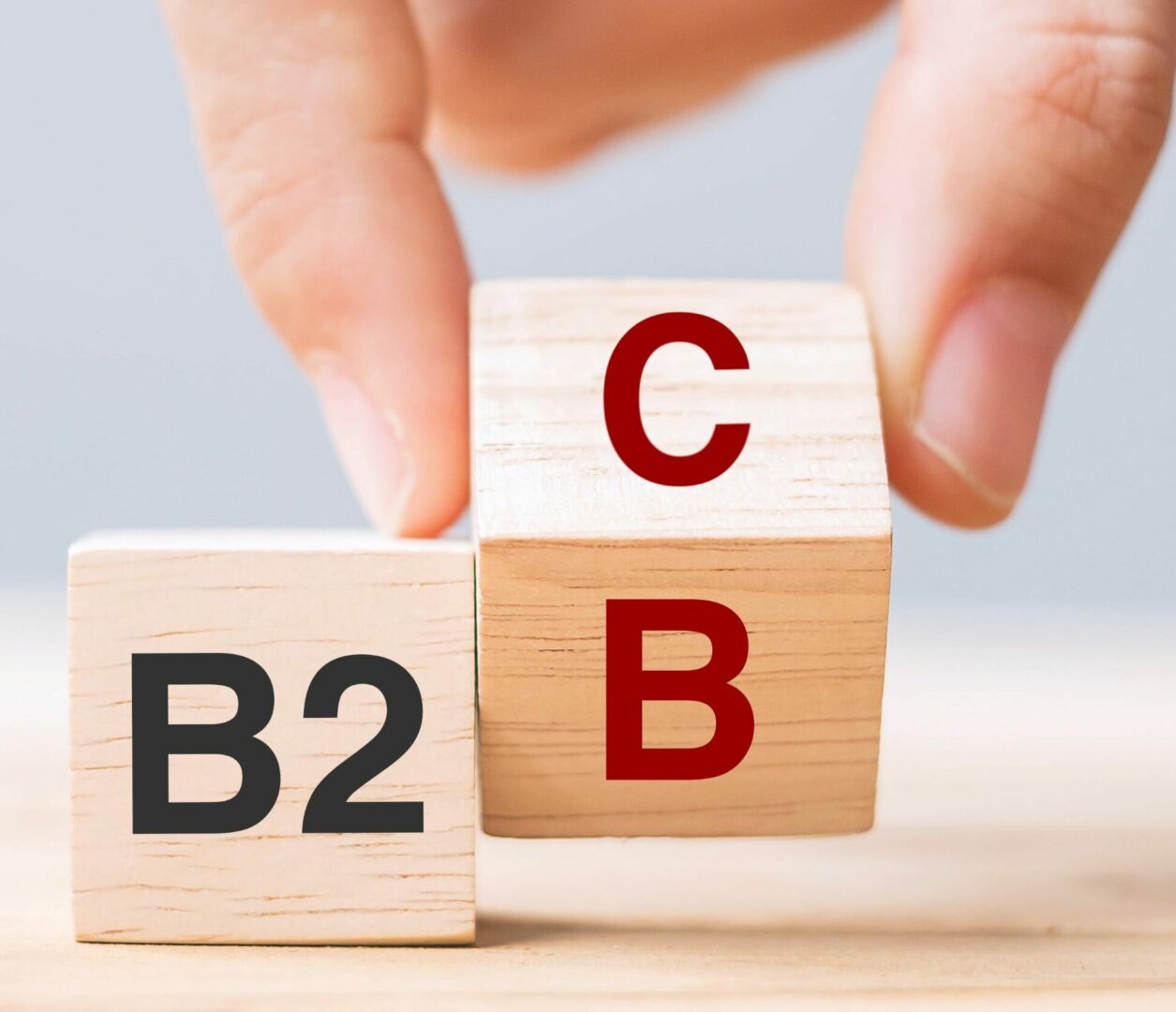Obviously the main difference between B2B marketing and B2C marketing is who you’re marketing towards: B2B marketing is aimed towards other businesses while B2C marketing is aimed towards consumers. Because of the differing nature of these two audiences, the two different kinds of marketing have very different characteristics.
The buying journey
The B2B buyer’s journey is much lengthier than the B2C buyer’s journey. Business purchases have to go through a lot more approvals before being greenlit. An average consumer most likely only needs to consider their own opinion before deciding to proceed.
Logic vs Emotion
B2C buyers are more easily swayed by emotive marketing while B2B buyers aren’t as prone to emotional purchases. Due to more people having to agree on a purchase, B2B buyers have more opportunities to reason out their purchase. Not only that, but it is necessary. B2B buyers are looking at their purchases as investments and it’s important that a product can grant them a return on that investment.
A B2C buyer that resonates with a product is more likely to buy that product. This is why B2C marketing is more emotionally charged. Branding is essential here as this is what allows consumers to connect with a business. Oftentimes, brand awareness is more important than the actual product.
Product framing
Due to the more logical nature of B2B marketing, products need to be framed in the context of how the product can be used by the business. While a B2C buyer can be told that a product will improve their life, a B2B buyer needs to be shown how. Explain how the product is a good investment. Explaining how the product can be used appeals to the logical decision-making of the B2B buyer’s journey.
B2C marketing generally involves how a product can solve a consumer’s problem. The intricacies of how this is done aren’t as important as how much the consumers have faith in these claims. B2C buyer’s don’t want a lengthy explanation of the product. They want to get straight to the point.
Target audience
While it is obvious that B2B businesses and B2C businesses differ in their target audience, there’s more to it than that. B2C marketing is aimed at those that will use the product. After all, they are the ones making the purchasing decision. In B2B marketing, this may not be the same. The executives making the purchasing decisions aren’t necessarily the ones that are using the product. For this reason, B2B marketing may be marketed towards those making the purchasing decisions rather than those that make use of the product.
The target audience then also dictates the kind of language that will be used in marketing. B2C buyers are very varied in the knowledge they have and thus the language used in B2C marketing has to be understandable to most of the buyers. There is considerably less jargon used. B2B marketing, however, has to show credibility. B2B buyers are more likely to buy from experts who understand their processes and terminology. Therefore, jargon can be expected in B2B marketing as it builds credibility in the eyes of those that understand it. This is B2B resonance.
Relationships
The relationship between a B2C business and its customer is often only indirect. The relationship is instead with the brand. The business rarely has any association with the customer and a customer is rarely ever going to religiously buy from one brand alone.
B2B businesses often work in a particular market where a large portion of their sales come from referrals and repeat customers. Generating leads is of the utmost importance and maintaining these relationships takes equal importance.











